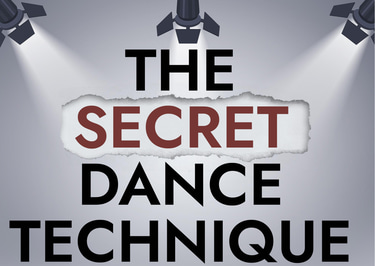Why Emotional Intelligence Matters for Kids—and How Dance Can Help
Learn how children can develop emotional intelligence—self-awareness, empathy, and emotional regulation—through fun, movement-based activities. This post explains why EQ matters for kids and how practicing it through dance helps them build these skills for everyday life.
9/17/20252 min read


Imagine a child in a busy classroom, excited to do their best. Maybe it’s a group project, a game, or even a dance activity. Someone bumps into them, a teammate makes a surprise move, or a plan doesn’t go as expected. How the child reacts—exploding, withdrawing, or pausing to think—shows their emotional intelligence (EQ).
Emotional intelligence is the ability to notice emotions, manage reactions, and understand how others feel. According to psychologist Daniel Goleman, it includes self-awareness, self-regulation, motivation, empathy, and social skills. Children with strong EQ handle challenges, navigate relationships, and build confidence that lasts a lifetime.
Small Moments, Big Lessons
Even everyday situations, like waiting for a turn or sharing materials, can become opportunities to practice EQ. Children with strong emotional intelligence:
Stay calm when frustrated or criticized
Solve conflicts respectfully
Stay motivated when things get tricky
Build positive relationships with peers
These skills don’t just help in the classroom—they give kids a foundation for life.
And its importance for jobs is real. The Future of Jobs Report 2025 from the World Economic Forum highlights the core skills employers are looking for—and many fall under emotional intelligence. Over 50% of employers cited motivation and self-awareness, 61% listed leadership and social influence, and 50% emphasized empathy and active listening. These aren’t just “nice to have” skills—employers see them as essential for success in tomorrow’s world.
A Fun Way to Build Emotional Intelligence
So how can parents help children strengthen these essential skills? The Secret Dance Technique classes take a new fun approach-building life and dance skills in one class! These class intentionally discusses the life skill first, then develops it through fun movement and dance.
Instead of jumping straight into choreography, children first explore a life skill—like emotional intelligence, focus, creativity, or growth mindset. Then, through interactive dance activities, games, and partner exercises, they practice the skill in real time.
For example, a class focusing on emotional intelligence might start with a short discussion on recognizing and regulating emotions. Then, children learn to dance while practicing staying calm, collaborating, and expressing themselves thoughtfully. Kids will be moving, laughing, and having fun while preparing them for the future. This experiential approach makes the skill stick because children are actively using it, not just hearing about it.
How a Class Works
Life Skill Spotlight: Introduce a life skill from one of four pillars: mindset, social-emotional intelligence, memory & focus, or creativity.
Dance & Apply: Learn choreography and play interactive movement games to practice the life skill in real time-while learning to dance!
Reflection & Goal-Setting: End with a discussion and small goal-setting so children leave ready to carry the skills beyond the class.
All of this happens in a fun, active, and engaging environment, where children enjoy moving while learning essential life skills.
Give Your Child a Head Start
If the goal is for a child to develop life skills that stick, this approach helps them grow emotionally, socially, cognitively, and creatively—all through the joy of dance. Children leave class more confident, focused, and ready to thrive in a changing world.
[Learn More and Enroll Today!]
Sources:
Goleman, D. (1995). Emotional Intelligence. Bantam Books.
World Economic Forum. (2025). The Future of Jobs Report 2025. https://reports.weforum.org/docs/WEF_Future_of_Jobs_Report_2025.pdf
Life Skills. Fun. Dance.
Dance is the secret tool—helping kids grow beyond the dance floor.
© 2025. All rights reserved.
Contact:
This program is for educational purposes only
lorenziaprilauthor@gmail.com
